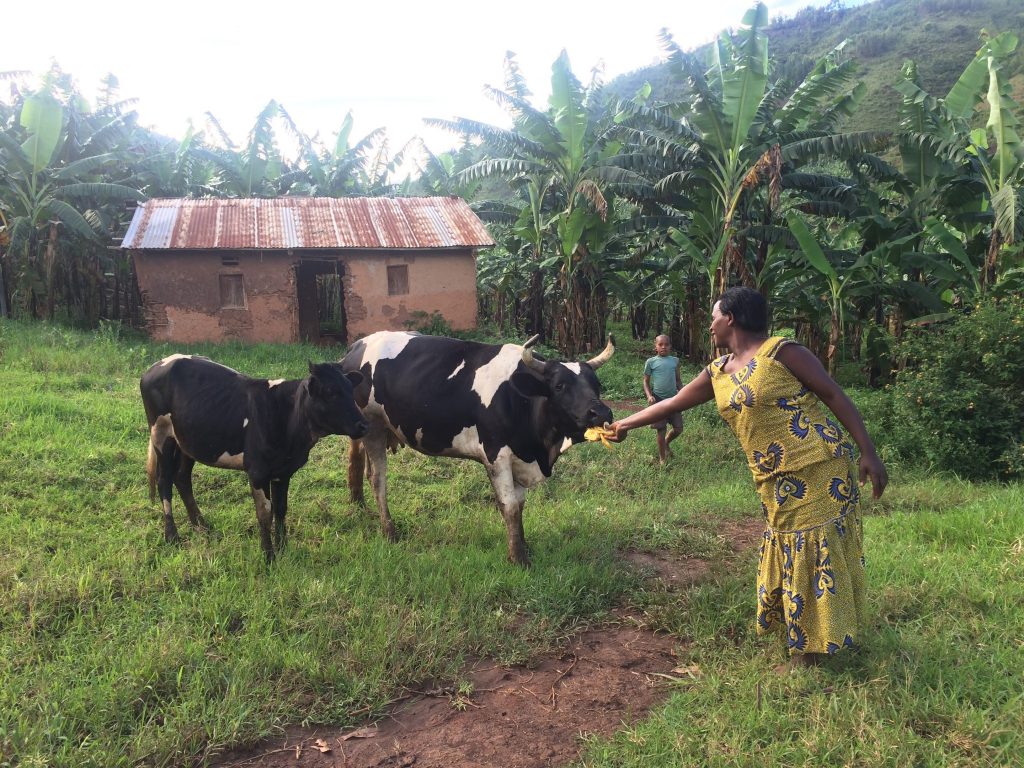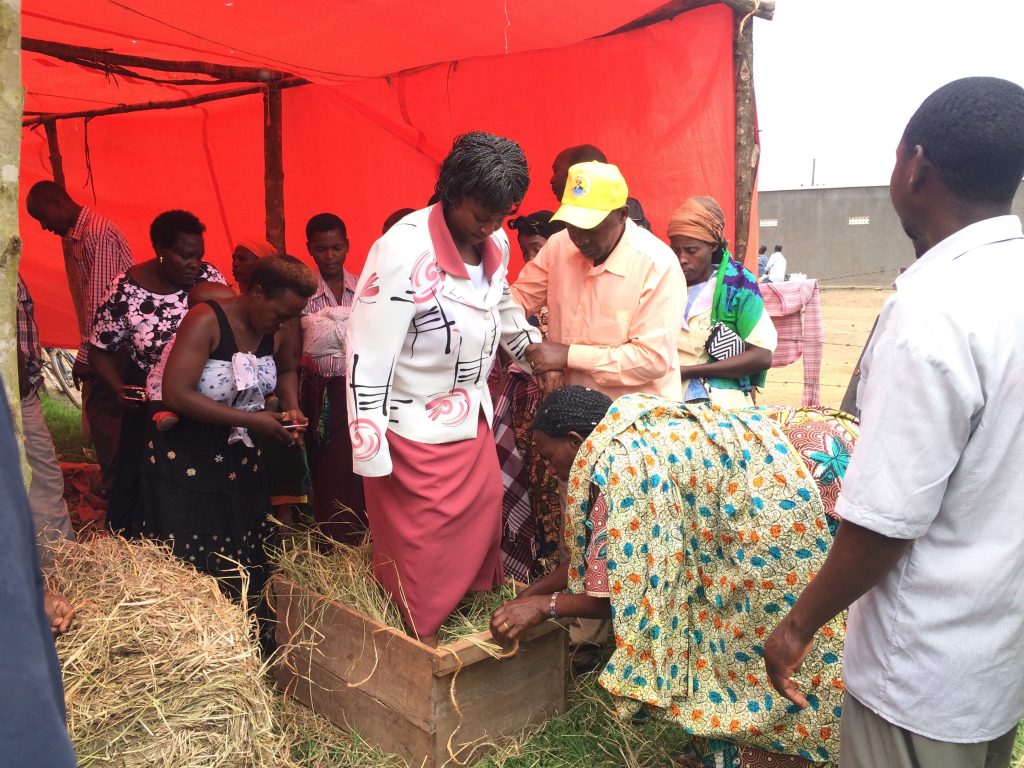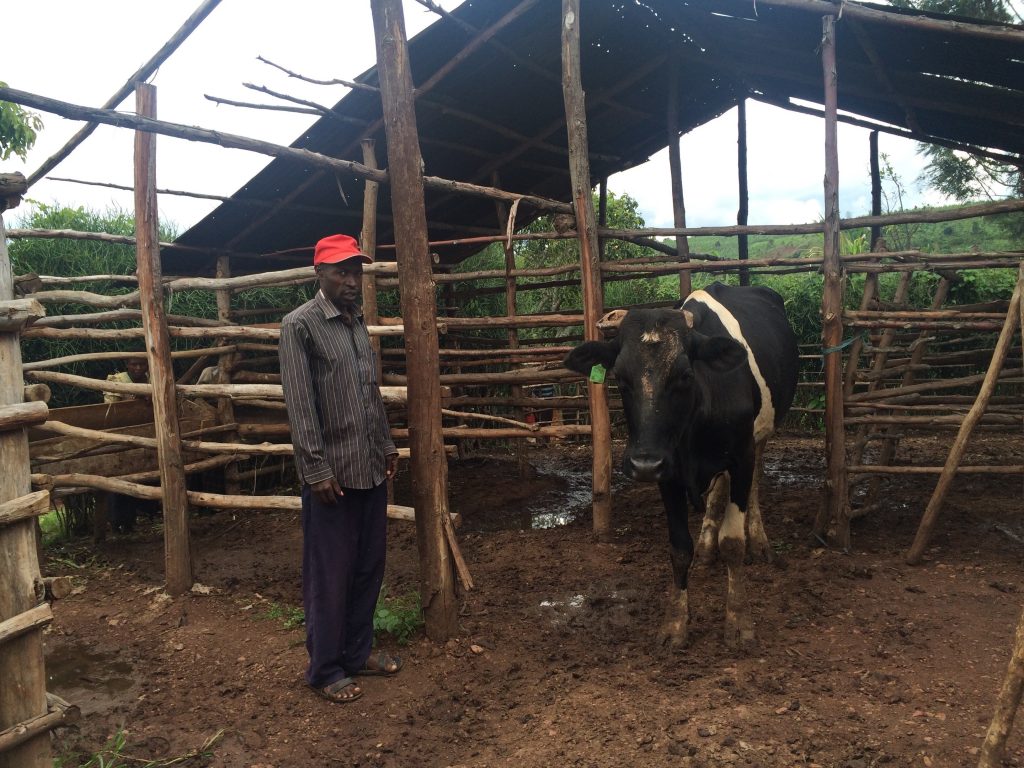Last spring semester I conducted research on development aid in Uganda, and I went in as a complete skeptic.

A woman feeding the cows that she was given through KOICA (Korean International Cooperation Agency).
I read articles and books written by world-renowned economists and political scientists and from there I formed my own opinions. I decided that the amount of money given to developing countries was not producing any noticeable changes or benefits. These opinions were formed based on my understanding as an outsider viewing what was happening in developing countries. I spent weeks designing a questionnaire in hopes that it would confirm my beliefs about development aid, but it only took me a day of speaking with a handful of dairy farmers to realize how wrong I had been.
Farmers spoke about the extreme poverty and food insecurity that plagued them for decades- malnutrition was a constant and realistic fear.

Men and Women in Nyakitunda have a training session on the importance of creating hay bales, allowing them to provide food for their cows during the dry season.
These fears came to an end when various organizations took interest in Ruhiira Village. The organizations created sustainable agriculture initiatives, including free classes on sustainable farming, and sustainable livestock upkeep.
For once, the farmers felt as if people cared about their lives. They were now trained in the practices of sustainable agriculture; they were given the knowledge and technology to succeed. Farmers that I spoke to told me that their profits had doubled since sustainable agriculture initiatives had been introduced to their village. They were now able to have a sustainable life: they could send their children to school; they could feed and clothe them. These organizations brought hope to the people of Ruhiira, Uganda; they suddenly felt as if they had a purpose, and responsibilities.

Keeping cows in enclosures keeps them from picking up diseases found in the grasses that they would typically graze in.
Profugo holds their work to the same high standard as many of the country’s leading development agencies, and it is for this reason that I chose to work with Profugo this past summer. Profugo recognizes the profound impact that outside aid and knowledge can provide, and has gone forth to create positive change in Wayanad, India, not only by providing much needed materials, but also by providing a change in mindset. Profugo’s work has motivated the villagers in Wayanad, India. This motivation has led to successes such as the Kitchen Garden Project and the Tailoring Project. Profugo’s impact does not end here. This year’s annual fundraising campaign will raise money to provide tools for sustainable agriculture, including workshops, where villagers will learn about the importance of organic farming. You can support the campaign here.
If there is anything that I have learned over the past year while working in Uganda and during my time with Profugo, it is that outside organizations are not just donors of material goods, they create a change in the mentality of the villagers – they give hope and encouragement. It is from this development aid that these lives have been transformed. Giving farmers the knowledge and tools to engage in sustainable agriculture gives them the power to shape a stable future for themselves and for generations to come!

Leave a Reply
You must be logged in to post a comment.